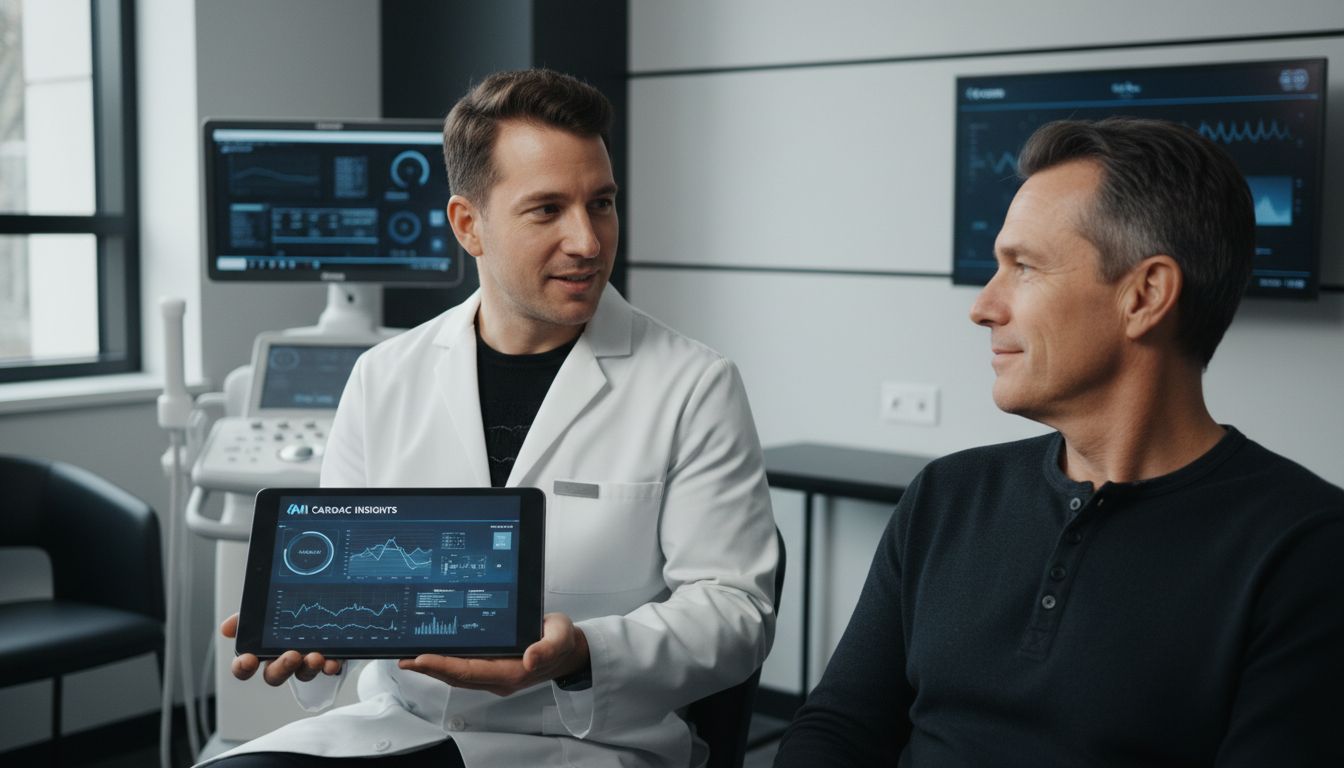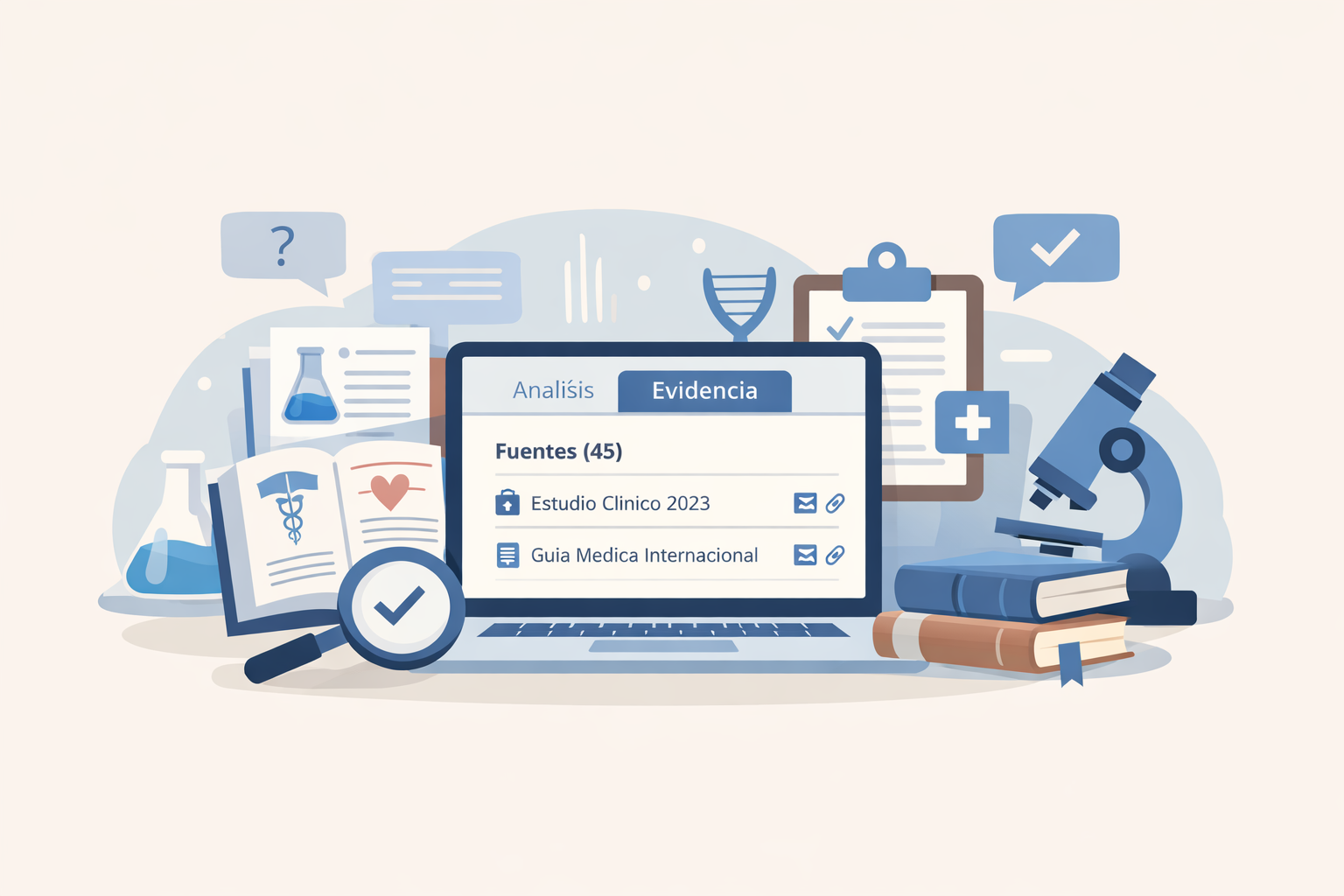Did you know that more than 70% of medical errors are related to clinical management and documentation failures? Protecting sensitive patient data and streamlining daily work has become indispensable in any modern cardiology practice. Find out how to configure Itaca.ai step by step to ensure safety, compliance and efficiency in every consultation.
Table of Contents
- Step 1: Integrating AI into SOAP clinical note production
- Step 2: Applying diagnostic support in cardiology cases
- Step 3: Validate and adjust recommendations with authorized sources
- Step 4: Optimize daily case and documentation management
Step 1: Integrating AI into SOAP clinical note production
The integration of artificial intelligence in SOAP clinical note taking represents a quantum leap in modern medical documentation. In this section, you will learn how to transform your clinical information recording process using AI tools efficiently and accurately.
The first step is to familiarize yourself with SOAP Notes to understand the standard structure. AI can help you automatically generate Subjective, Objective, Analysis and Plan sections with amazing accuracy.

To get started, set up your system to capture key data during the consultation. AI can extract relevant information from your interactions with the patient, structuring it according to SOAP elements. For example, symptoms mentioned by the patient will go directly into the Subjective section, while test results will be integrated into Objective.
Pro tip: Always review the AI-generated note. The technology is a support tool, not a replacement for your clinical judgment.
A crucial aspect is to customize the note templates to suit your specific specialty. Personalized note templates will allow you to adjust the structure according to your particular cardiology needs.
The key is to view AI as an intelligent assistant that optimizes your time and reduces the administrative burden, allowing you to focus on what's most important: patient care.
Step 2: Applying diagnostic support in cardiology cases
Applying diagnostic support in cardiology using artificial intelligence can fundamentally transform the accuracy and speed of your clinical assessment. In this section, you will explore how AI tools can empower your ability to diagnose and analyze complex cardiac cases.
The crucial first step is to understand how Understanding Differential Diagnosis works with artificial intelligence support. AI can rapidly analyze multiple clinical variables such as electrocardiograms, patient histories, biomarkers, and symptomatic presentations to suggest possible differential diagnoses.
To implement diagnostic support, systematically enter patient data into the system. The AI will process the information and generate a probability analysis, highlighting potential cardiac conditions that require your specialized attention. This process does not replace your medical judgment, but complements it by providing additional insights.
Pro tip: Always keep a critical review of AI results. The technology is a support tool, not a replacement for your clinical expertise.
A fundamental aspect is to train the AI model with cardiological cases specific to your practice. The more quality data you enter, the more accurate the diagnostic suggestions will be.
The real revolution lies in seeing AI as a powerful collaborator that amplifies your ability to diagnose early and personalized.
Step 3: Validate and adjust recommendations with authorized sources
Validating and aligning AI recommendations with authoritative sources is essential to ensure accurate and safe diagnoses in cardiology. According to Understanding ChatGPT in Medicine, The integration of AI technologies requires a critical and systematic approach that combines data from medical records, recent research and individualized protocols.
The first step is to contrast the AI suggestions with updated clinical guidelines from recognized cardiological societies. Each recommendation should be verified through multiple sources of scientific information, such as specialized medical journals, international consensus and protocols of prestigious cardiac institutions.
According to Artificial Intelligence for Therapists: Consultation Guide, In the case of AI, it is crucial to maintain professional judgment as a central element. AI should act as an assistant that optimizes processes, not as a replacement for your clinical expertise.
Pro tip: Establish a validation protocol where each IA recommendation goes through at least two verification filters before consideration.
For effective validation, develop a scoring system that evaluates the agreement between AI suggestions and current medical standards. Document any discrepancies to continuously improve the AI model.
Remember: technology is a powerful tool, but your clinical judgment remains the most important element in the diagnosis and treatment of heart disease.
Step 4: Optimize daily case and documentation management
Optimizing daily case management and documentation in cardiology means transforming your clinical workflow using smart technology tools. In this section, you'll explore strategies to reduce administrative burden and focus on what really matters: patient care.
The first step is to automate the construction of medical records. New in Itaca: build your patients' medical history automatically will allow you to generate complete records with minimal effort, capturing relevant data instantly and accurately.
To maximize your efficiency, implement systems that integrate different types of medical notes. Introducing 9 New Types of Notes: Personalized Medical Documentation will help you create specific documentation for each type of cardiac consultation, from initial evaluations to treatment follow-ups.
Pro tip: Spend the first 15 minutes of your day setting up and customizing your documentation templates.
It is also critical to establish a quick review protocol. Set aside a specific time to verify that the automatically generated notes meet your professional standards, ensuring accuracy and completeness.
The key is to see technology as your ally. Every minute saved in documentation is one more minute spent on direct care of your cardiac patients.
Transform your cardiology practice with AI by Itaca
In clinical cardiology practice, the constant challenge is to balance diagnostic accuracy with rapid and secure documentation. This article highlighted the importance of tools that support the creation of SOAP clinical notes, intelligent diagnostic support, and rigorous maintenance of data security. We know that, for you as a practitioner, every detail counts and the administrative burden can be the biggest obstacle to providing warm and efficient care.
Itaca.ai emerges as the solution designed to alleviate these pain points. Our platform automates the instant generation of clinical notes and offers artificial intelligence-based diagnostic support designed exclusively for physicians. It also ensures that all sensitive information remains protected under strict privacy standards. Find out how our features can be tailored to your specific needs at New Features Archives - Itaca and delves into its use and benefits in Guides Archives - Itaca.

Do you want to reduce documentation hours and improve the accuracy of your cardiology diagnostics today? Visit Itaca.ai, Explore its powerful tools and start transforming your practice by integrating AI with confidence and security. Don't let technology be a challenge. With Itaca.ai, is the ally your practice needs.
FAQ
How can I configure AI to create more accurate clinical notes in cardiology?
To set up AI effectively, start by setting up your clinical note templates according to the SOAP structure and adjust the data the system should capture. Regularly review the generated notes to ensure they are aligned with your specific clinical criteria.
What steps should I follow to validate AI recommendations in cardiology diagnostics?
To validate AI recommendations, check each suggestion against current clinical guidelines and your experience. Establish a validation protocol where each AI recommendation is reviewed by at least two reliable sources.
How to optimize my workflow by automating clinical notes?
Optimize your workflow by automating the creation of medical records. Spend the first 15 minutes of your day configuring and customizing your templates to suit your specific needs and integrate automatically into the system.
Is it advisable to continue using my medical judgment even when using AI in the practice?
Yes, it is critical to continue to use your own medical judgment despite the assistance offered by AI. Consider AI as a support tool that can improve your efficiency, but always validate its information with your clinical experience.
What are the benefits of integrating AI into clinical note taking in my cardiology practice?
Integrating AI into your clinical notes can increase accuracy and reduce administrative burden.
Use this technology to automatically extract relevant data during the consultation, allowing you to spend more time caring for your patients.
How often should I review AI system access permissions in my clinical practice?
Performs periodic reviews of access permissions every 3 to 6 months to ensure privacy of patient data. Adjusts access roles according to changes in medical staff and their responsibilities.





Leave a Reply